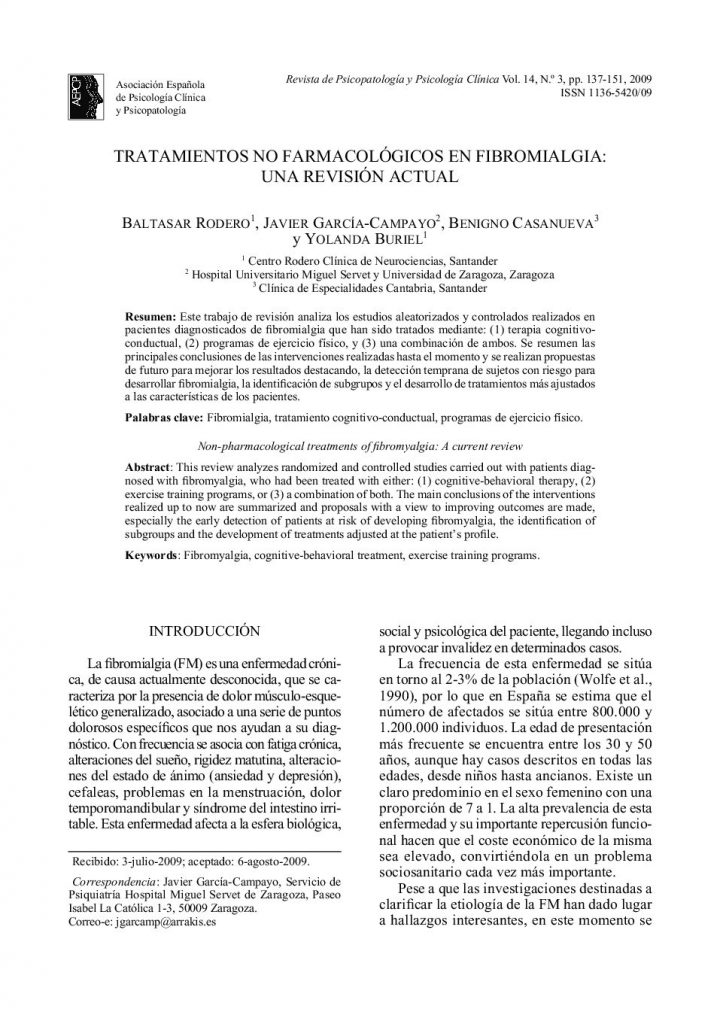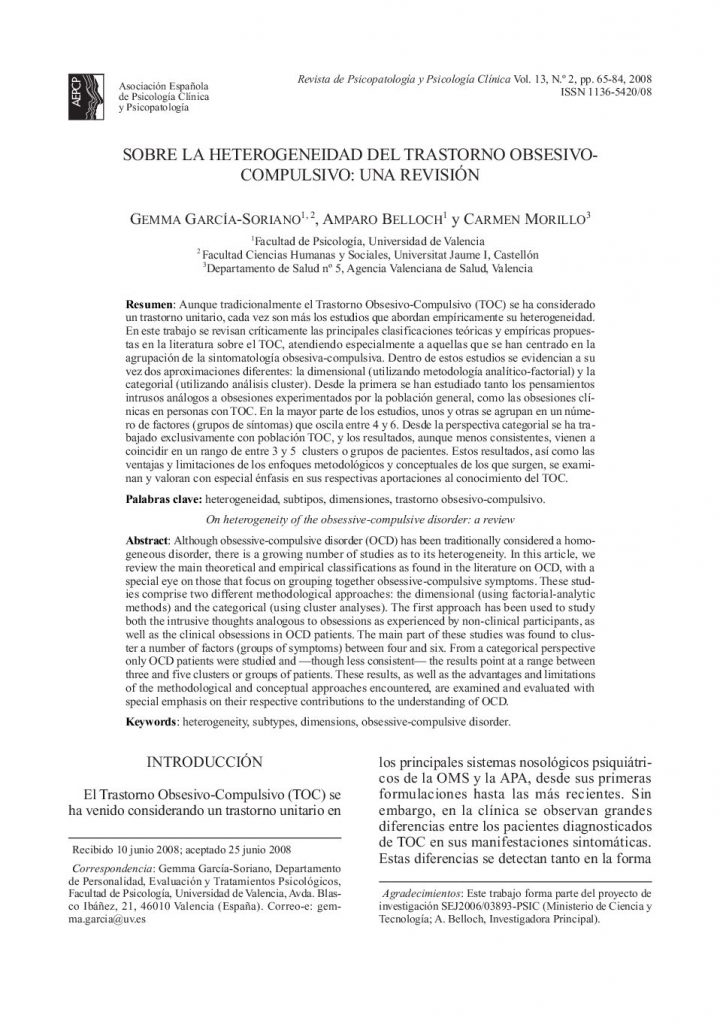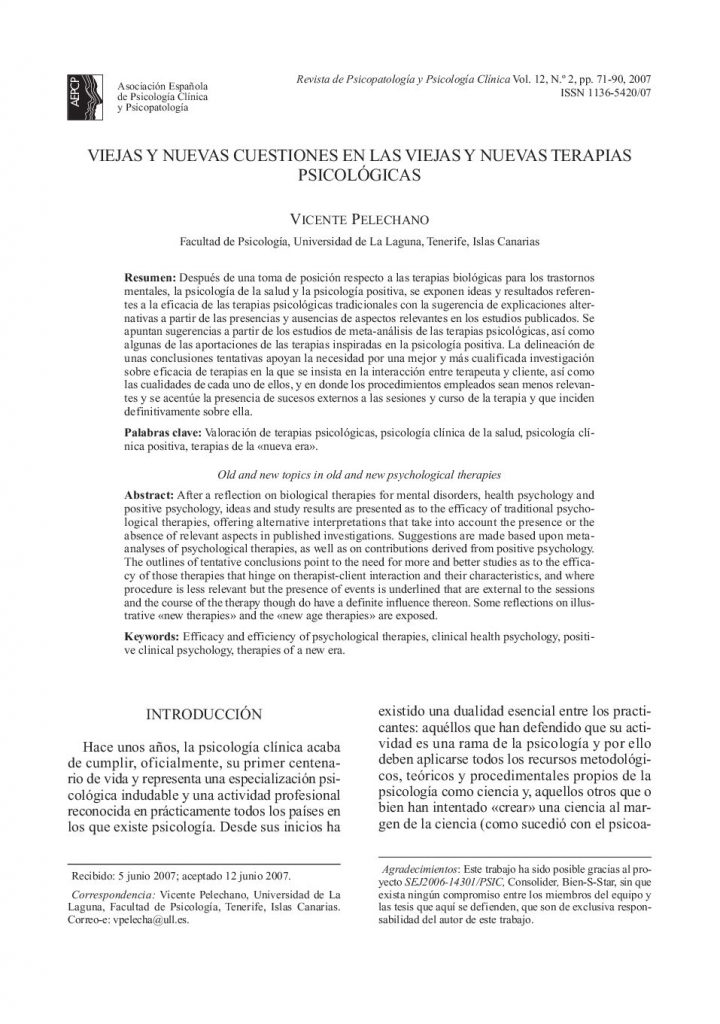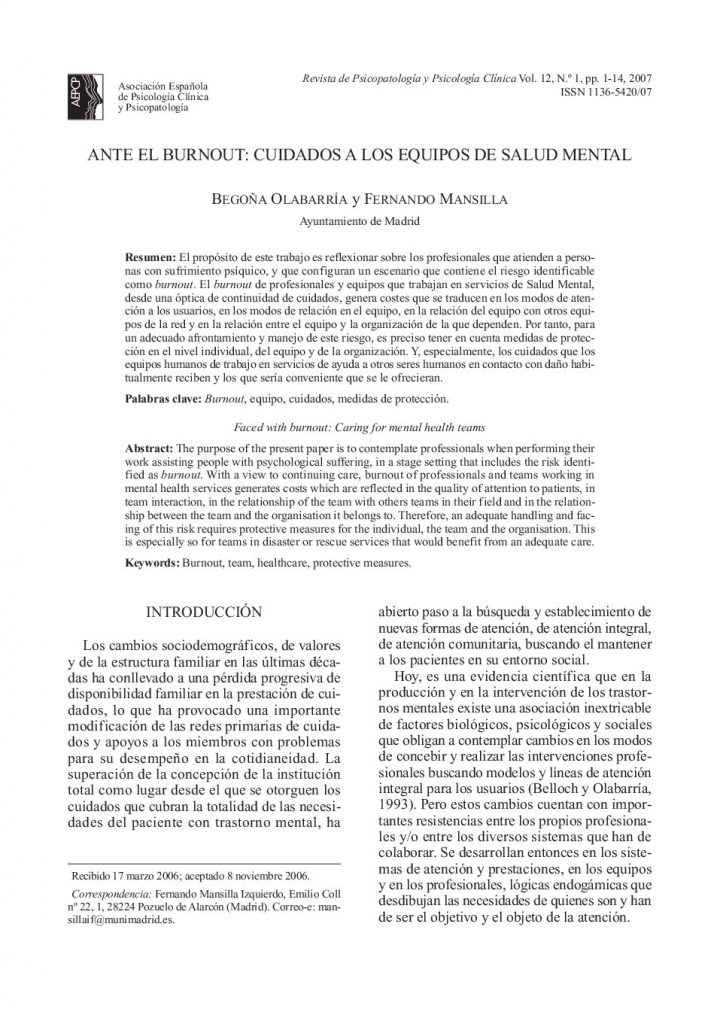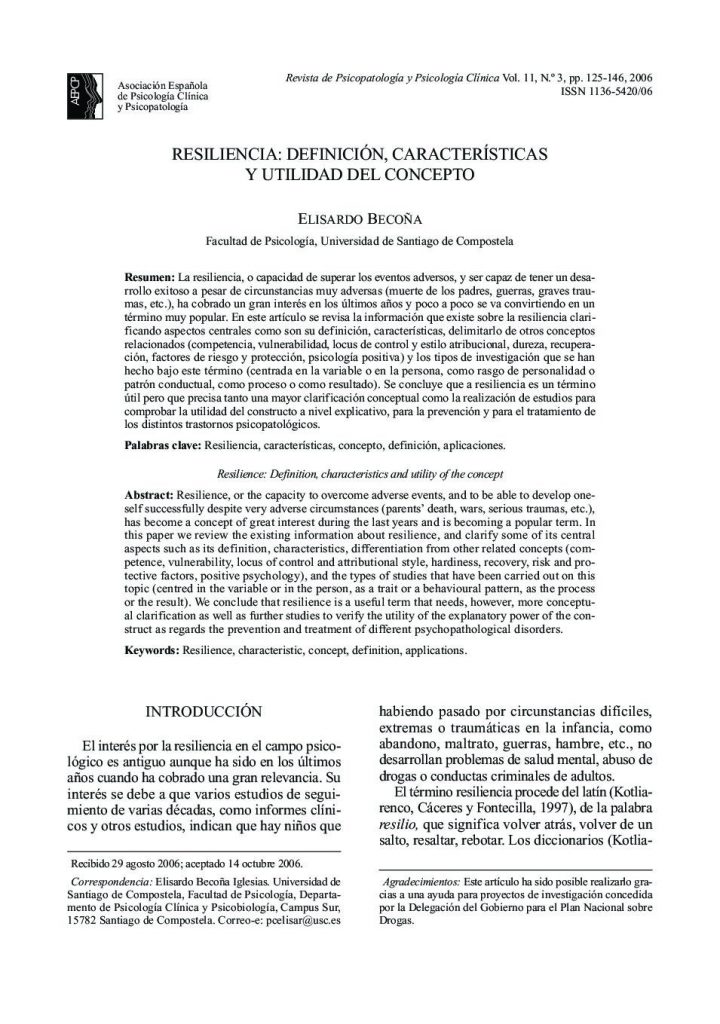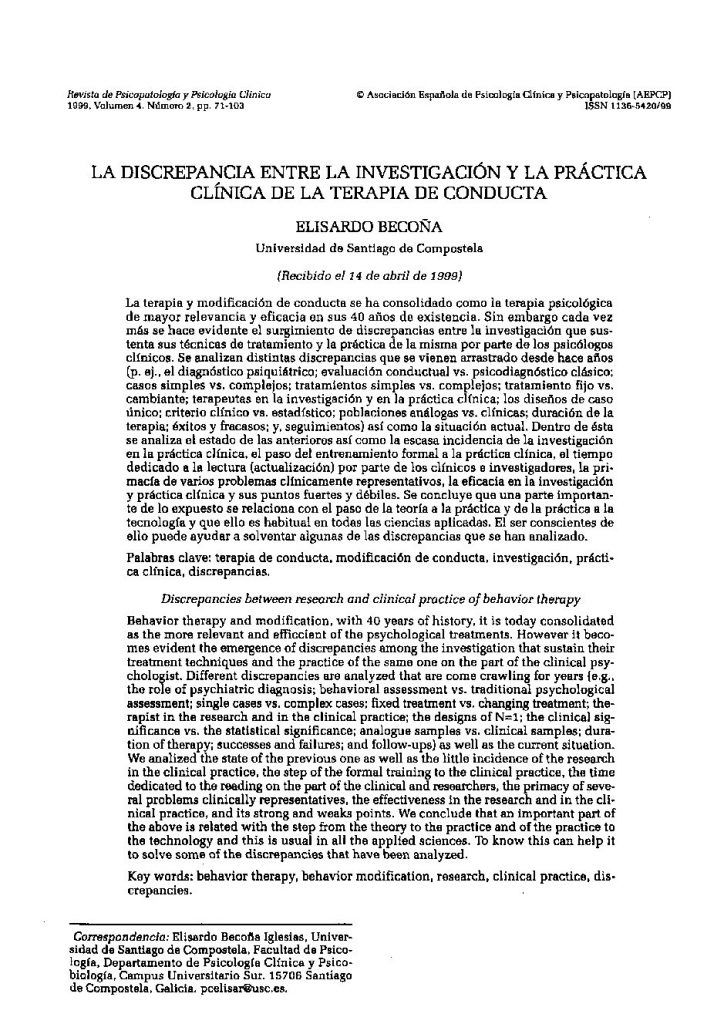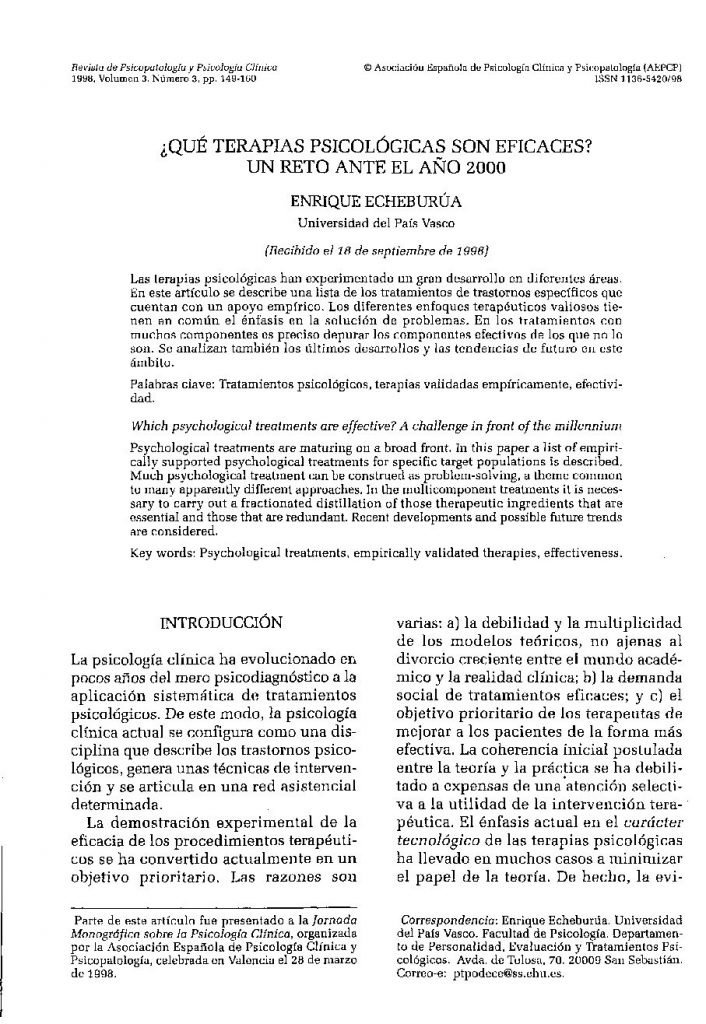Efectividad de las terapias psicológicas: Un análisis de la realidad actual.
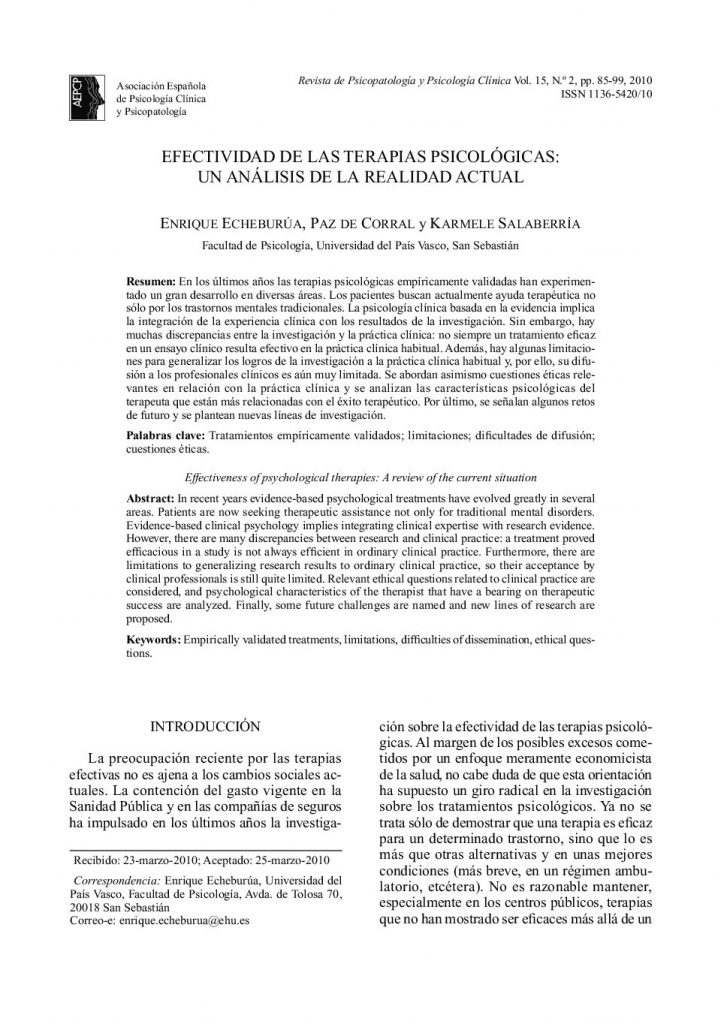
- Efectividad de las terapias psicológicas: Un análisis de la realidad actual.
- Obsesividad e Intrusiones Alimentarias en pacientes con trastornos alimentarios y población general.
- Efecto del formato de intervención individual o grupal en la estimulación cognitiva de pacientes con enfermedad de Alzheimer.
- Depresión y calidad de vida relacionada con la salud en pacientes con artrosis: Diferencias de género.
- Cuestionario de Ayuda Recibida de la Ex pareja (CARE): Un Instrumento breve para evaluar la co-parentalidad post divorcio.
- Dionisio Pérez y Pérez (1926-2010)
In recent years evidence-based psychological treatments have evolved greatly in several areas. Patients are now seeking therapeutic assistance not only for traditional mental disorders. Evidence-based clinical psychology implies integrating clinical expertise with research evidence. However, there are many discrepancies between research and clinical practice: a treatment proved efficacious in a study is not always efficient in ordinary clinical practice. Furthermore, there are limitations to generalizing research results to ordinary clinical practice, so their acceptance by clinical professionals is still quite limited. Relevant ethical questions related to clinical practice are considered, and psychological characteristics of the therapist that have a bearing on therapeutic success are analyzed. Finally, some future challenges are named and new lines of research are proposed.
En los últimos años las terapias psicológicas empíricamente validadas han experimentado un gran desarrollo en diversas áreas. Los pacientes buscan actualmente ayuda terapéutica no sólo por los trastornos mentales tradicionales. La psicología clínica basada en la evidencia implica la integración de la experiencia clínica con los resultados de la investigación. Sin embargo, hay muchas discrepancias entre la investigación y la práctica clínica: no siempre un tratamiento eficaz en un ensayo clínico resulta efectivo en la práctica clínica habitual. Además, hay algunas limitaciones para generalizar los logros de la investigación a la práctica clínica habitual y, por ello, su difusión a los profesionales clínicos es aún muy limitada. Se abordan asimismo cuestiones éticas relevantes en relación con la práctica clínica y se analizan las características psicológicas del terapeuta que están más relacionadas con el éxito terapéutico. Por último, se señalan algunos retos de futuro y se plantean nuevas líneas de investigación.



